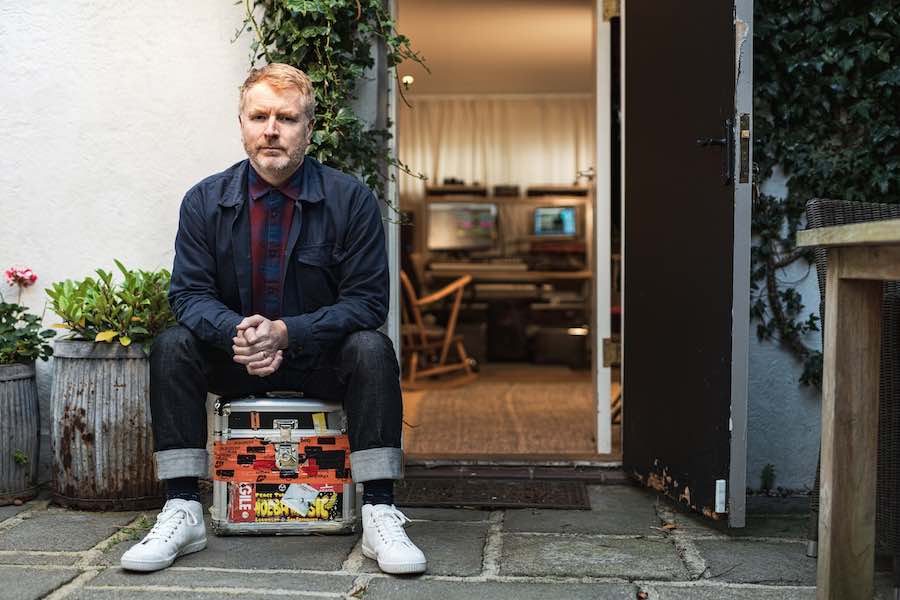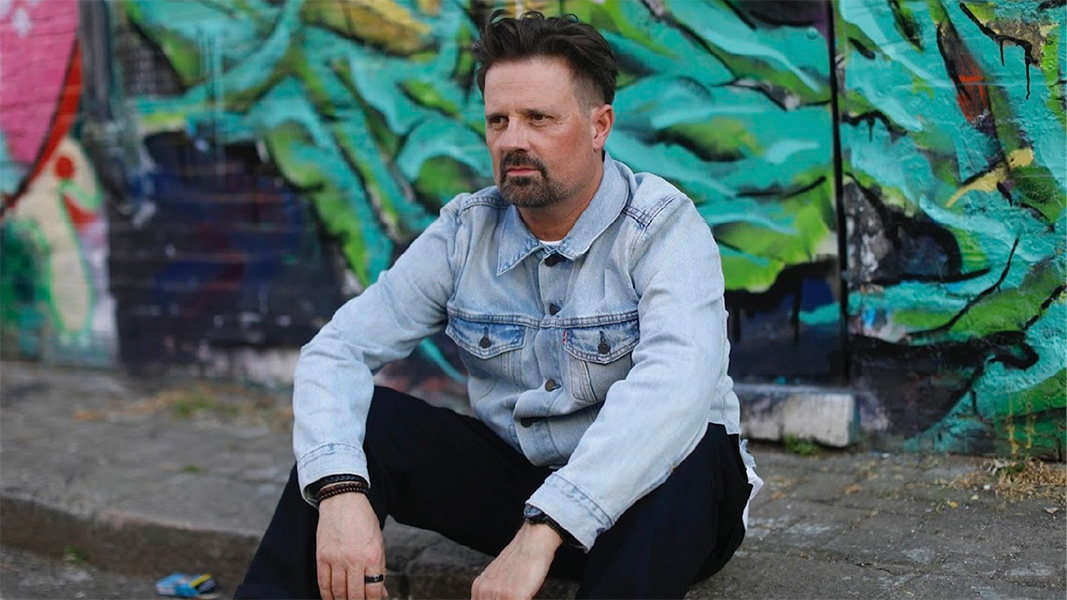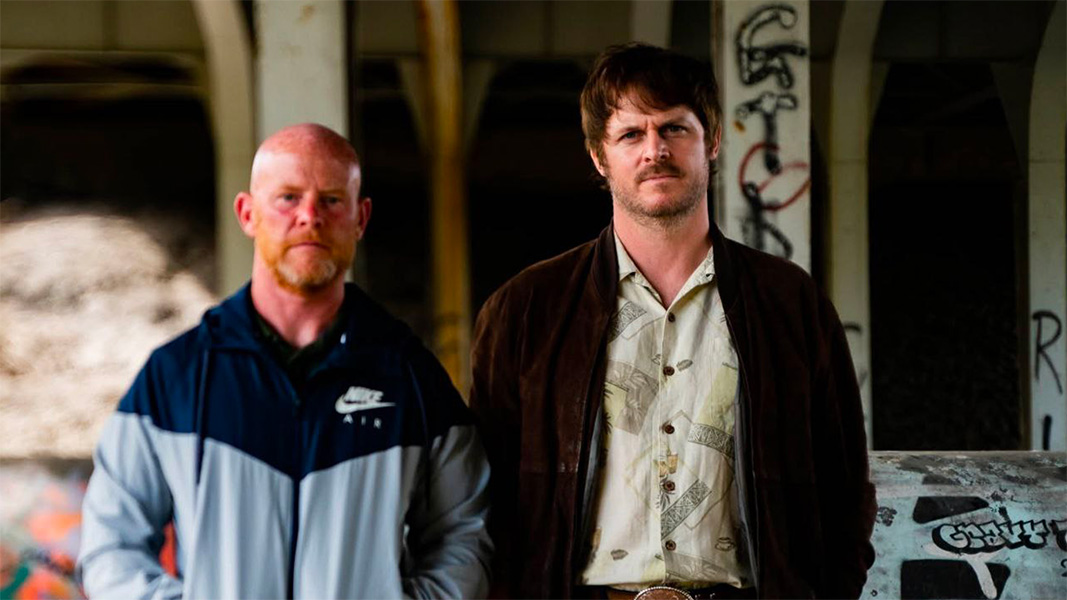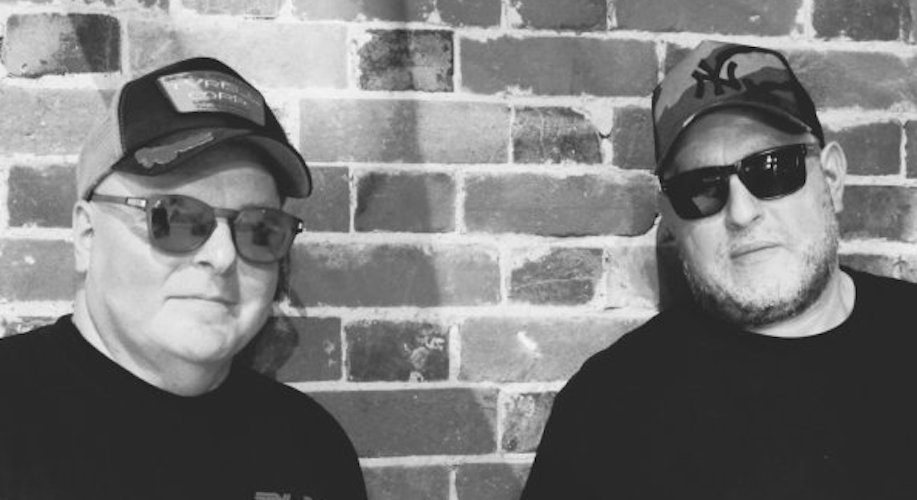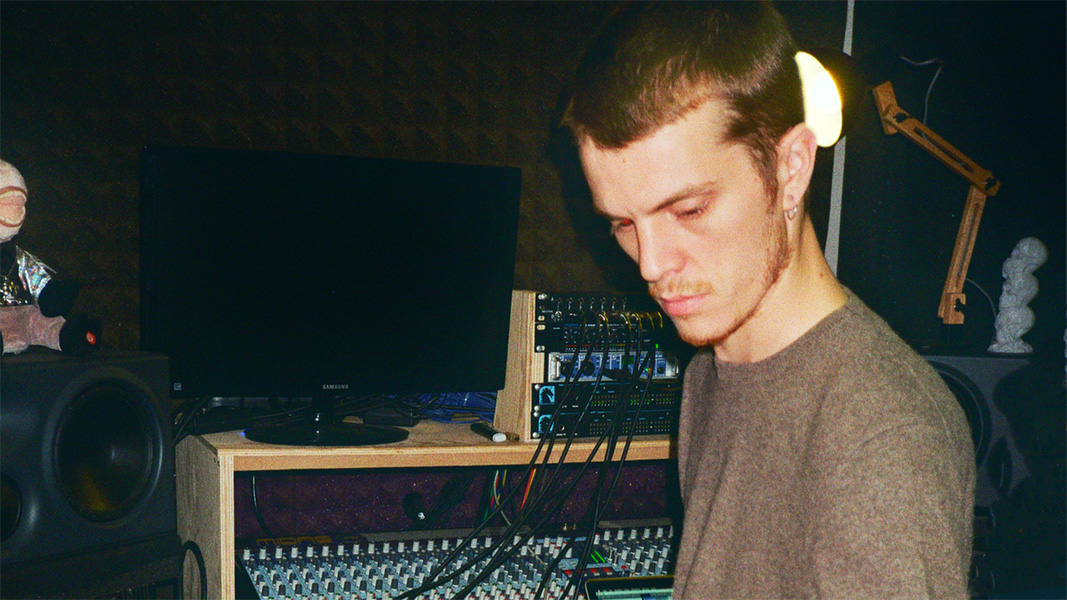Jimpster’s lockdown LP was made throughout 2020 and finally sees the light of day at the end of February 2022 having been delayed around 6 months due to the ongoing vinyl pressing hold ups. Birdhouse is the revered producers seventh full
length LP and can be considered a full circle as he takes a step away from the dance floor to revisit his early inspirations of jazz, 70’s fusion, library music, ambient and sample-based downtempo electronica. With its soulful touches, vocal and live musician features and trademark warm Jimpster production, we also think it could be his most accomplished and accessible yet.
The opening title track sets the tone for what’s to come with rustling percussion, widescreen choral samples, dub FX and drifting pads all coming together to create a sense of optimism. The first of six vocal features comes next. ‘Ascension’ with UK vocalist Oliver Night (featured on IG Culture’s recent Earthbound LP) is a simple soul jam with live bass from Nick Cohen and Jimpster’s
beloved Fender Rhodes joining the lo-fi drum groove.
Next up we’re treated to ‘Voodoo’ featuring brilliant young NYC MC/poet/producer who first grabbed Jimpster’s attention with his mind-melting track Signs, released in 2020 on Youngbloods. Yoh’s sung (not sung) vocal flow adds a new dimension to the Jimpster sound and is hopefully the first of many more collaborations to come with this perfect pairing. ‘Still Believe’ takes us on a tripped-out journey into slo-mo, lopsided MPC beats punctuated with otherworldly vocal samples, live bass and Rhodes making for an immersive late night mood.
The first of two tracks on the LP featuring London vocalist and songwriter Cairo drops next entitled ‘Beautiful Day’. Another incredibly talented young artist introduced to Jimpster through a mutual friend, Cairo adds a deep and uplifting vibe making for a track you’ll come back to time and time again. A slow-burning nu-soul groove which will draw you in with its warm glow. Lazarusman is a Johannesburg-native poet and vocalist known for his collaborations with Stimming, Joris Voorn and Booka Shade. Here he delivers a poem called ‘Heavy’, perfectly punctuating the haunting reverb-drenched horn, Detroit-esque chord stabs and filtered drums.
‘Future Paradise’ drops the BPM’s further still for a slow-stepping synth ride mixing up rising arpeggios, dubby flugel horn FX and the lushest of strings. It’s been 15 years since Jimpster and Capitol A last joined forces on ‘Left n Right’ from Jimpster’s Amour LP. Known for his work with Jazzanova, King Britt, Mark De Clive-Lowe and 2008 club anthem Serve It Up on Mantis, the San Francisco native MC delivers his inimitable flow to a blunted jazzy hip hop groove making for one of the LP highlights ‘Telegram’.
Up next, ‘Rain’ is an intimate and understated slice of contemporary soul music which pushes another spellbinding Cairo vocal front and centre, underpinned by loose, crunchy beats, dusty keys and moogy flourishes. Picking up the pace, ‘Doors Of Your Heart’ sees Jimpster get busy chopping up a funk groove whilst Nick Cohen lays down another killer live bass line. Lush keys, modular synths and some crazy FX processing take this into the stratosphere and call to mind some of his earliest productions in the late 90’s on his seminal LP Messages From The Hub.
Winding things down, Jimpster continues to revisit some of the sounds and flavours of his earliest work on ‘Tell You’, which goes seriously deep with touches of cinematic big band horns and a looped up vocal sample. Closing out the LP we have the aptly titled ‘Full Circle’ complete with sublime Metheny/Mays-style pads, muted synth arps and subtle FX to drift away to.
WWD: It’s really great to talk to you Jamie. Thank you for the time. Where are you today? How are you spending your day?
Thanks for the invite! I’m here in my studio in Essex and just finished a couple of projects – a remix for Jon Dixon and a guest mix for the French station Radio Nova.
WWD: For someone so used to gigging, the last couple of years must have been a bit of an endurance test.
It’s been a tough couple of years for most people I know but I’m happy to see the light at the end of the tunnel and I made sure to use the enforced downtime to be as productive as possible making new music, remixes, putting together my hardware-based Jimpster live-set and doing regular livestreams. It’s fair to say it was busier than ever, but I’ve missed gigging and looking forward to getting back travelling again for the rest of the year. And losing the excess lockdown weight!
WWD: I’m pretty certain there was a lot of music noise in the Odell household when you were a kid. What do you remember your folks listening to back then?
Yeah, I was lucky enough to have been bought up in a musical household and remember certain LP’s getting rinsed out by my parents. Herbie Hancock’s Headhunters made a big impact with the amazing sleeve design before I’d even heard the music, but this LP would end up being one of my favourite LPs of all time. My mum was a big Joni Mitchell fan so Shadows & Light and Hejira were played a lot as well as plenty of Stevie Wonder, particularly the Woman In Red soundtrack when it came out in ’84. It’s pretty cheesy but has a couple of classics including Love Light In Flight which is amazing, and I still play out regularly.
WWD: How much has having a famous musical father impacted your career?
No doubt my dad being a professional musician helped me on my own path in so many ways. Being taken on regular record shopping trips as a young lad and having to kill hours on end while he sat and listened through piles of jazz records started my own love affair with vinyl. I can still remember the unique smell of plastic, dust and cigarette smoke and was how I discovered the Streetsounds Electro compilations which became an obsession of mine in the early eighties. I also got taken to quite a few live gigs so getting to see legends such as Miles Davis, Luther Vandross and Chick Corea would have provided plenty of inspiration. During school holidays I’d go with my dad to the studio where Shakatak would be working so got early exposure to the recording process and was able to mess around on synths and samplers which at that time were definitely not affordable enough to have at home. The thing I’m most grateful for though, is the encouragement that I could also follow my dreams of making my own musical career. Despite most of my teachers trying to talk me out of even taking music as a subject at school, my parents never tried to talk me out of it.
WWD: When was your house music awakening? Is there a record that marks that time?
I came to house music from a slightly weird angle, having been massively into the UK dub and early sampling experimentations of Adrian Sherwood’s On-U Sound, Tackhead, Meatbeat Manifesto and Renegade Soundwave. I guess RSW’s Space Gladiator, and The Phantom would have been pivotal tracks that led me on a path to then discover more US house music and deeper club sounds on labels such as Strictly Rhythm and Nu Groove. Then, in the early 90’s the rave scene exploded, and I remember being floored by The House Of God by Directional Homophonic Sound and The Seven Stars by Quasar which were big tracks getting played heavily at the events I’d been going to like Moondance, Elevation and World Party.
WWD: You went off to study Music Productions and Recording in Manchester. Did it put you in a good place for what was to come?
It was the perfect city for me to live in at that time, and even though the Hacienda was in its final couple of years Manchester was still considered a clubbing Mecca, a musical epicenter and melting pot of creativity.
WWD: The Manchester scene has always been vibrant. What was going on there at that time?
Being in Manchester around 1993/94 was very influential, catching the tail end of the Hacienda but more importantly clubs like the Herbal Tea Party in Hulme where Justin Robertson and Andy Weatherall spun alongside The Dust Brothers aka The Chemical Brothers playing their first gigs. In addition to the house and techno you also had Fat City running more eclectic events where you would hear jazz, hip hop, funk, soul and Latin alongside electro and disco. A bit later you had The Unabombers’ Electric Chair which felt like the club that brought together all the separate musical tribes under one roof and whose influence can’t be overstated.
WWD: Did you have DJ gigs in Manchester then? What records were you playing?
Yeah, I was starting to get a few random DJ gigs which included playing ‘proper jazz’ before and after live bands at Night & Day Cafe as well as a brilliant night called Prescription which I hosted an upstairs room at, bringing together live musicians to jam along with decks n FX whilst the likes of Tom Middleton and Matthew Herbert would be playing in the main room. Mo Wax, Compost and Ninjatune releases would get spun alongside Jeff Mills and Underground Resistance in a proper musical mishmash which is quite hard to imagine getting away with these days!
WWD: You were also playing live jazz gigs in Manchester. Where did you play? What did you play?
I played keys for various different bands at venues like Band On The Wall, PJ Bells, Night & Day, and Cafe Renoir. This was mostly jazz standards and funk covers and was a great experience getting to play with some brilliant musicians that I would go onto work with more regularly once I started making the first Jimpster tracks.
WWD: I know you love your jazzy keys on your Fender Rhodes. Do you play other instruments?
Unfortunately, not. I actually had an embarrassing experience auditioning for a music college before I went to Manchester where I had to play a second instrument to be able to apply for the course. I chose vibraphone as my dad had one at home and I remember the teacher trying to hold in his laughing at how bad I was. I’d love to be able to play bass though and I do a decent ‘air’ Mark King impression!
WWD: Have you ever sung on a record?
Yes, backing vocals on a few of my own tracks and remixes but always heavily autotuned and way back in the mix so it’s more of a texture rather than an audible voice. Actually, I’ve done quite a bit of vocodered vocal stuff as well. I often draft my wife Emma in for backing vocals and even lead vocal on a couple of tracks. She actually has a very nice singing voice with a hint of fellow Essex girl Sade!
WWD: As a live musician, how far back do you go with The Bays? What’s going on with the band these days.
The Bays is a live electronic improvisational project which was founded by drummer extraordinaire Andy Gangadeen, and through various incarnations and gigs has included Tom Middleton and Mark Pritchard, Richard Barbieri (of Japan fame), Palm Skin Productions, Shur-i-kan, DJ Krush, Hextatic, Stereo MC’s and even Herbie Hancock! I played with them for around 8 years from the early 00’s and had some of the most amazing musical and travel experiences of my life during this time including Peel Sessions at Maida Vale, Glastonbury dance tents several times and countless big festivals all around the world. All without never having a clue what we’re going to play before we step on stage. One of the final gigs I played before my hiatus with the band was the aforementioned Herbie Hancock gig at a sold-out Barbican where he joined us on stage for the set and I definitely wasn’t nervous or intimidated at all! We recently played Brixton Academy and hope to be doing some more gigs again during the summer.
WWD: You recently played your new live at Jazz Café in London. How was the night from the stage for you?
Yeah, Session Victim had a one-month weekly residency there in January and invited me to debut my new live set on one of the nights. It seemed like the perfect space to showcase it and it went down well so already looking forward to some more shows including Village Underground in London and then further afield in the coming months. It’s been a steep learning curve getting my head around the MPC and TR8S which are the hub of my set up and it’s a bit nerve wracking being up there on your own when I’m so used to being surrounded by amazing musicians when playing live with The Bays, but it’s definitely an adrenalin rush and really want to push and develop it to the point where I can be creating brand new tracks from scratch rather than remixing my existing releases.
WWD: We know your studio is at home in Essex. Do you have a no entry sign on the studio door for the family at home when you’re trying to prep and focus? How does it work?
A big red flashing ‘RECORDING’ light would be a great idea actually! It’s always a bit tricky balancing work and family with my studio being at home but the benefits definitely outweigh the negatives. I mostly work regular hours unless I have a tight deadline on a remix when I might do an occasional all-nighter but between school runs and adding a new puppy in the mix it can sometimes feel a bit chaotic and like spinning plates.
WWD: If we can talk about the labels. Freerange Records started in ’96. Were you at uni with Tom Roberts then?
Tom was at uni in Luton whilst I was in Manchester, but we met up fairly regularly and have been friends since we were about fourteen. We’ve always shared the same taste in music and have spent countless hours and student loans buying new records and sharing discoveries. We had always discussed the idea of starting a record label so when my wife’s mum sold a business and offered us £2k in 1996 to make our first release we jumped at the chance. The first release was Jimpster – Initial EP and was actually comprised of tracks which were projects that I’d completed as part of my college course.
WWD: Who were the labels that inspired you both when you set up Freerange?
R&S, Pork, Ninjatune, Compost, Mo Wax, Good Looking, Warp, Infonet, Rising High, Irdial, U-Star.
WWD: You are very well known for breaking new artists. As a mentor to so many over the years, it seems highly important to you this aspect as well as just putting out music.
I think I’m just a bit of a control freak so always like to spend time on the A&R side of things helping get the music in the best possible shape ahead of release. Most artists really appreciate the constructive criticism and guidance, and this also helps give a bit of continuity to each release. A bit like an executive producer role in film and TV I suppose.
WWD: In 2009 Delusions of Grandeur was born with the mighty Session Victim an early signing for you. What was the idea behind the new label?
Freerange had become known for a certain sound, and I guess the digital revolution contributed to more pigeon-holing and restrictive genres and sub-genres resulting in us feeling less confident releasing different styles on the one label. Starting another imprint enabled us to release music that didn’t quite fit the deep house sound that Freerange was putting out but that I was still playing in DJ sets so Delusions Of Grandeur was born.
WWD: Aside from all of the great music and the success, there must have been tough times too.
The decline in physical sales and the transition and constant developments of digital and now streaming is always a challenge and something you have to try and adapt to. There was a period in the late 00’s where we had several vinyl distributors go under owing us money and stock which definitely tested our resilience.
WWD: What do you think it is about Freerange Records that has keep the fire burning?
I think our followers and supporters are very loyal and appreciate our efforts and consistency in helping introduce new artists. At the end of the day Tom and I both still have that same passion, energy, and enthusiasm for the labels as when we first set up and hopefully that comes across in the records we put out.
WWD: In your own productions, there’s a distinctive Jimpster sound. What is it that defines that sound? Would it be fair to say that sampling off vinyl is a central element in your work.
Yeah, since I first started making tracks, I’ve always loved chopping up samples and adding subtle textures and rhythms by pitching pads, FX, or percussive rhythms up and down to help give even the most minimal, stripped back grooves some extra depth and interest. The baselines have to have a bit of bounce to them, and I try and encourage the happy accidents that come from chopping up, manipulating and looping samples. When it comes off vinyl you get the extra little clicks and pops and noise which can add something special which is hard to achieve when using plugin synths or single hit drum samples. Tuning is another thing which I pay attention to and make sure synth and sample parts aren’t always bang on in tune with each other. A big part of what people refer to as analogue warmth when talking about hardware synths is simply slightly drifting tuning. Even though a lot of my productions are pretty smooth sounding, I try to get away from being too clean and sterile which isn’t always easy but something I’m constantly pushing for.
WWD: You’ve been putting out music since the early 90s.There are a lot of Jimpster tracks that sound very Ron and Chez. Were these guys big role models for you?
These guys are the absolute masters of capturing a mood and an energy from a fairly stripped back set of sounds. I love the way a lot of their tracks feel jammed out and live sounding. The confidence that they have to let a groove roll without agonizing over minute detail is very inspiring. Obviously, they have the musical and production skills, not to mention great taste, to come up with amazing sounds, grooves, and ideas in the first place too. For me, Ron and Chez get that perfect balance of depth and musicality without over-complicating things which ensures their tracks create magic on the dance floor.
WWD: Who do you look to today for inspiration in production?
To be totally honest I still look to the ‘old guard.’ Not to say there isn’t any young talent emerging, but I find guys like Louie Vega, Glenn Underground, I:Cube and Joe Clausell are still bringing the heat in their new productions. The next generation of Detroit artists such as Omar S, Jon Dixon and Kyle Hall always blow me away too.
WWD: Franc Spangler is he going to be about in 2022?
I’ve got a bunch of ideas on the go which are more on the Franc tip so hopefully I’ll grab some time to finish off a new EP soon.
WWD: Your weekly sessions during the dark days of the pandemic made a lot of people smile. Kinda gave people something to hold on to as we knew it was coming each week. Did it do the same for you during that dark time?
Doing my livestreams through the pandemic was a great experience for me and also quite an unexpected one as I had to push myself out of my comfort zone to make them. Many positives came from doing the streams – rediscovering and falling in love with vinyl again, having a reason to keep on top of my promos and support the new music, which was being made, as well as building a really lovely and loyal family of supporters which I feel have become friends. It bought our own family closer together as everyone helped set up and get involved and we had some really special little parties with friends coming and joining us when the restrictions allowed. I reconnected with old friends who I’d not spoken to for years through the streams and Twitch in particular was a great way for producers to meet and chat nerdy tech talk or reminisce about old records. There were times when it felt pretty much like hanging out in the DJ booth in a club with different DJ’s and friends popping in for a drink and catch up. In a way I would like to carry on with them, even as we come through the other side, but it is quite a big commitment to do on a regular basis and I also quite like the idea that it was a result attributed to the pandemic and keeping it as a memento of what we went through.
WWD: Your album Birdhouse is a total surprise. What inspired this change of mood?
Even before the pandemic I wanted my next Jimpster LP to be a more downtempo and home-listening sound but as the gigs and travels stopped, and lockdowns enforced I suddenly had some extra time to step away from the dance floor. I’ve always been a big fan of library music, soundtracks, and exotica from the 70’s and early 80’s and during the pandemic I found myself listening to a lot of very obscure stuff which had recently become available on streaming sites. It seemed like the right time to try and put myself in a similar headspace to when I made my first Jimpster tracks which were quite eclectic yet easy listening. I often get messages or see comments from people who enjoyed my early Jimpster stuff and would like to hear more of this kind of sound from me now so I felt there would be at least some audience out there who’d be into it.
WWD: You have collaborated on this album with a lot of talent, both new and old. What can you tell us about some of the new talent like Cairo?
It was great to be put in touch with young London artist Cairo through a mutual friend and we were lucky enough to catch a window of opportunity to actually get together in the studio to record the session in the flesh. He has such a beautiful voice and tone, so I wanted to keep the tracks very simple to allow space for him to shine. Elsewhere on the LP we have collaborations with NYC MC Yoh whose music I heard late at night on 6Music, and it blew me away, so I was stoked when he got back to me and was open to do something together. Oliver Night is from London and has worked with IG Culture on his LCSM Earthbound LP and Capitol A and I did a track together called Left n Right from my 2006 LP amour. Lazarusman is from Johannesburg, and we’ve met a few times at gigs when I’ve played there and someone that I’ve always been keen to work with.
WWD: Have you got a fave track or is that too hard to say?
I don’t really have a favourite and there’s no obvious ‘single’, but I like the way that it’s an easy to digest LP which feels like a cohesive whole and I hope people enjoy it from start to finish, just like the good old days!
WWD: Where should we listen to it and what should we be drinking while we listen to it?
It feels like a fairly solitary LP to me so headphones on, negroni in hand, sit back and soak up the sounds for half an hour.
WWD: After nearly three decades in the business, is there anything that you have not achieved, that you would still like to?
I definitely still have plenty I’d like to achieve although it all revolves around simply creating music that hopefully connects with people. More collaborations, more experimentation and different working methods, I’d love to make a full-on ambient LP, and I’d love to do a project which ditches sequencing and focuses on recording live musicians all playing together in the studio together.
WWD: Would you say you are a perfectionist?
More of an imperfectionist!
WWD: What keeps you grounded?
My family.
WWD: If you hadn’t been working in music all of your life, what do you think you might have done instead?
I dread to think!
You can buy his new album ‘Birdhouse’ HERE

